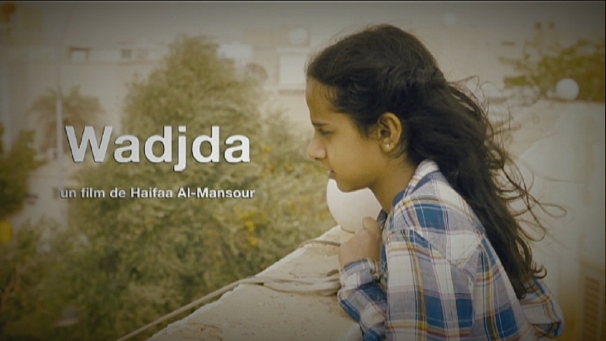There is no doubt in the limited reality of
women in the media but even then we expect to find a few female artists in
every nation out of ignorance. Haifaa-Al-Mansour is the only woman to direct a
feature film, Wadjda, in Saudi Arabia. Wadjda is about a 11 year
old girl who enters a Koran memorizing contest in the hope of using the winning
prize money to buy herself a bicycle. Similar to The Bicycle Thief, the bicycle
in Wadjda also represents freedom especially because the ban on women
riding bikes has recently been removed in Saudi. Mansour also touches upon
issues such as child marriage, polygamy, and street harrasment but Wadjda (main
character) is a revealing portrait of a modern Saudi girl (Rothman).
Wadjda is the first film to be shot entirely on
Saudi soil. For obvious reasons, Mansour had to pass many hurdles to complete
her film. After getting permission to film, her main issue was getting around
the land’s law restricting women working public. Mansour directed the entire
film from inside a van and communicated with her cast and crew via walkie-talkies.
Mansour said this just made her work harder (Rothman). Asides from the production,
exhibition was also a hassle because Saudi Arabia lacks movie theaters. Wadjda
was released on TV and DVD; it was also screened in the recent Tribeca film
festival in New York.
In 2005 Mansour released a few short films and the head
turning full length documentary, Women Without Shadows. Women without
Shadows is based on the position of women in Sadui society and their
possibilities of changing the customs and traditions. Being a Muslim exile
from Saudi Arabia, Mansour focuses her films on issues dealing with women in
her homeland. Wadjda is the little Mansour who was restricted to riding her
bike inside the house. Although Mansour came from a liberal family, the baggage
of tradition also fell upon her and through her films she is trying to make a
difference. As expected she is receiving a lot of backlash of this as well.
Common issue with women directors is getting funding for
projects. Most assumed it would be impossible for a women to make a movie on
Saudi soil but Mansour made that possible with Wadjda. Be it Women without
Shadows or Wadjda, Mansour hopes her creations will be well accepted
by her target audience. The problem here isn’t male verses female but the
similar ideas shared by both men and
women in the the Sadui society regarding the place of women. Women without
Shadows starts off by showing women fully covered in abyas with only their
eyes showing and even then those women refused to be filmed because their son
or husband of any other male member of the family don't approve of it.
In an interview, Mansour suggests than it may have been a
bit easier for her if she was to wear a hijab but she wouldn't do that because
she want to dress how she feels comfortable not how others want to see her. This
is where the concept of Author/ Auterur theory comes in. Maggie Humm discusses
how the problem with feminist literary theory and feminist film becomes the
changing of critical task from established moral values. Mansour makes sure she
keeps her moral in tact and not alter any of her values for what the public
wants see or what they are used to watching on the screen. Instead Mansour presents
her moral values on the silver screen in an attempt to change harmful social norms.
Sources:
"Author/Autor: Feminist
Literary Theory and Feminist Film" by Maggie Humm
“Different perspectives from
the Middle Eastin films”
http://www.entrecineastas.com/en/content/women-without-shadows
“The Remarkable Story Behind
the First Movie Shot Entirely in Saudi Arabia” Lily Rothman. http://entertainment.time.com/2013/04/22/the-remarkable-story-behind-the-first-movie-shot-entirely-in-saudi-arabia/
* sorry the blog post is late. i didn't realize the post wasn't appearing on the blog.



No comments:
Post a Comment